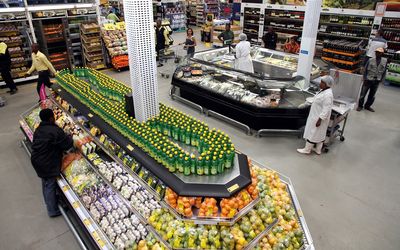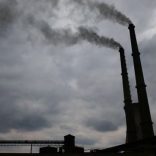Zimbabwe agrees $455 million power plant refurbishment deal with Jindal
Relief for SA as global food prices decrease in July

File photo
Global food prices fell modestly in July after increasing for five consecutive months, a United Nations Food and Agriculture Organisation (FAO) food price index showed on Thursday.
The index fell 0.8% to 161.9 points in July.
A drop in global food prices will provide some welcome relief for SA, which has had to import food after a severe drought caused production shortages and a spike in domestic food prices.
Local food inflation rose to 11% year on year in June from 10.8% year on year in May.
“The overall decline of the index was largely caused by drops in international quotations of grains and vegetable oils, more than offsetting firmer diary, meat and sugar prices,” FAO said.
The FAO global food price index is a trade-weighted index tracking international market prices for cereals, vegetable oil, dairy, meat and sugar.
The cereal price index averaged 148.1 points in July, down 5.6% from June and 11% below the July 2015 level. “Among the major cereals, maize values dropped sharply as weather conditions in the key growing regions of the US proved more favourable than was predicted,” the FAO said.
Wheat prices also fell in July mainly on very large world supplies and, in particular, due to prospects for abundant export availability from the Black Sea region.
By contrast, rice prices strengthened somewhat, as dwindling availability underpinned Basmati and long-grain quotations, according to the index.
The vegetable oil price index averaged 157.4 points in July, down 2.8% from June and falling for the third consecutive month. The slide was mainly on account of palm oil, whose price dropped to a five-month low as regular rainfall underpinned a seasonal recovery in production in Southeast Asia, while global import demand remained subdued.
The dairy price index rose 3.2% to 142.3 points in July. Prices rose for all the dairy commodities that the index comprises, in particular butter.
The meat price index averaged 159.9 points in July, 1.3% higher than its June value.
All meat experienced firmer prices, in particular pig meat, underpinned by limited supply, including a shortage of pigs for slaughter and lighter slaughter weights in the EU, and reduced output of sheep and bovine meat in Oceania, caused by herd rebuilding.












Leave a Reply
Be the First to Comment!
You must be logged in to post a comment.
You must be logged in to post a comment.